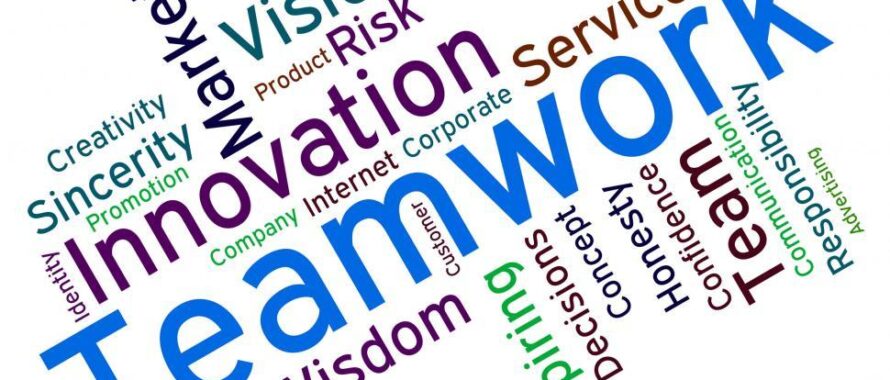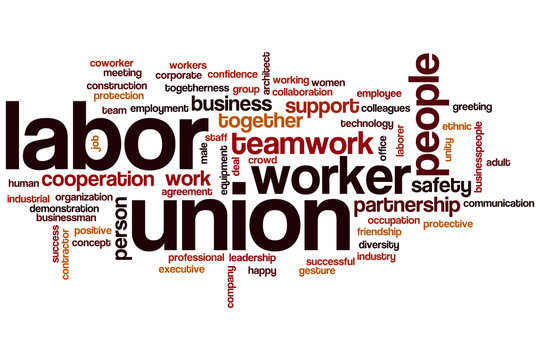About Us
Our mission at FTZ is to provide students with introduction level requirements and awareness to professional careers outside of a traditional educational environment.
Contact usContact Us Today
- 145 fleet st #233 National Harbor, MD 20745
- 240-935-1802
- info@functionaltrainingzone.net
- Monday-Friday: 9:30am-4pm
Companies Over Hiring
By: Chris The Graduate In today’s competitive job market, companies often find themselves caught in a delicate balancing act between meeting growing demands and ensuring optimal workforce efficiency. While expanding the team might seem like a logical step forward, the phenomenon of over-hiring comes with its own set of challenges. In this blog, we will explore the potential pitfalls of over-hiring and discuss strategies for achieving a harmonious and sustainable approach to workforce management. The company may be burdened with unnecessary financial burdens if it overhires. In particular, if the increased workforce doesn’t match actual demand, additional salaries, benefits, and training costs may strain the budget. Having too many employees can lead to inefficiencies and reduced productivity. The overstaffing of teams can result in redundancies and a lack of clarity about roles and responsibilities. As a result, overall performance can be negatively affected. Fast and excessive hiring makes it difficult to maintain a strong company culture. A disconnect may develop between team members as new hires are integrated into the existing company culture. Invest time and resources in strategic workforce planning to understand your company’s current and future needs. This involves analyzing market trends, predicting demand, and aligning hiring strategies with long-term business goals. Cultivate a flexible workforce that can adapt to changing demands. Consider implementing contingent work arrangements, such as freelancers or part-time employees, to handle fluctuations in workload without committing to permanent hires. Prioritize quality over quantity when hiring. Ensure that each new employee brings unique skills and strengths that contribute to the overall success of the team. This approach fosters a culture of excellence and specialization. Conduct regular performance assessments to gauge the efficiency and effectiveness of your workforce. Identify areas of redundancy or skill gaps and adjust your hiring strategy accordingly. While the desire to grow a company is commendable, over-hiring can lead to unintended consequences that may hinder rather than facilitate progress. Striking the right balance between expanding the team and maintaining efficiency is essential for long-term success. By focusing on strategic planning, flexibility, and skill alignment, companies can create a workforce that not only meets current demands but also lays a foundation for sustained growth and success.
- Chris The Grad
- 0 Comments
- January 20, 2024
University vs. Community College
By: Chris the Graduate When it comes to higher education, there are two main types of institutions to consider University Colleges and Community Colleges. While both offer educational programs at the college level, there are some key differences between the two that make them unique. For example, University Colleges typically focus on specialized topics and are usually smaller in size, whereas Community Colleges offer a wider range of courses and programs. We will explore these differences and highlight some of the key aspects that make each institution distinct. University colleges, often referred to as liberal arts colleges, are smaller institutions focused heavily on undergraduate education. They are typically more selective and offer a more intimate learning environment. University Colleges are known for their rigorous academic programs, small class sizes, and strong faculty-student relationships. Their curriculum often emphasizes critical thinking, creativity, and a well-rounded education. On the other hand, community colleges are open-access institutions that provide a wide range of educational opportunities for students. They offer associate degrees and certificate programs, as well as transfer pathways to four-year colleges and universities. Community colleges are designed to be accessible and affordable, with flexible scheduling options and a wide range of support services. Their curriculum is more focused on practical skills and knowledge, preparing students for immediate employment or further education. Size and Scope: University colleges tend to be smaller in size compared to Community Colleges, offering a smaller student-to-faculty ratio and more personalized learning experiences. Community colleges, on the other hand, have a larger student body and a wider range of programs, catering to a broader audience. Academic Programs: University Colleges are known for their strong emphasis on liberal arts and humanities, providing a well-rounded education that prepares students for careers in various fields. Community Colleges, on the other hand, offer a range of academic programs, including technical degrees and vocational training, that cater to specific career pathways. Cost and Accessibility: University Colleges tend to be more expensive, with higher tuition fees. However, they offer financial aid and scholarships options to make education more accessible. Community colleges, on the other hand, are known for their affordability, offering lower tuition fees and financial aid opportunities. Transferability: University Colleges often have transfer agreements with four-year colleges and universities, making it easy for students to continue their education. Community colleges, on the other hand, may have specific transfer agreements, but students may need to apply to transfer credits. Career Preparation: University Colleges focus on preparing students for careers in a wide range of industries. They offer internship programs, networking opportunities, and career services to support students in their job search. Community colleges, on the other hand, place a stronger emphasis on vocational training, offering programs that prepare students for immediate employment. In conclusion, the difference between University College and Community College lies in their size, academic programs, cost, transferability, and career preparation. Ultimately, the choice between these institutions depends on individual goals and aspirations. +
- Chris The Grad
- 0 Comments
- January 13, 2024
The Start of my Second Semester
By: Chris the Graduate Hello Everyone, Chris the Graduate here! I hope everyone had a wonderful holiday! After a long period of college and work, I finally got a break. However, now I am going on to my second semester, and I have a better understanding of the college system and how to build a great schedule so that I can succeed. I am excited about the new semester and I am looking forward to taking on new challenges. I am confident that I can reach my goals this time. Looking back at the beginning of my first semester, let’s compare and contrast what I have done over the semester and my goals for this semester. My first semester has come to an end, and to be honest, it was very difficult. There’s so much freedom yet so many responsibilities all at once. It’s definitely a change from high school. During my first semester, I had a few hiccups at the beginning, but I recovered throughout the semester to pass. Although my schedule was everywhere and assignments kept coming, I eventually learned how to adapt and become better at managing. Having just started my second semester, I think this will be a good start. It will be easier to be successful if you can schedule and work on a good schedule. Scheduling, due dates, and getting to class on time were not enjoyable in my first semester. Now I hope to use my second semester to make a comeback and become a better student. Having said all this does not mean I had bad grades or did not accomplish anything. There were times when I felt unmotivated, unfocused, and lazy, but this will change in the upcoming semester. Having an idea of what to expect makes me feel more prepared and ready for the future. In general, I plan to be a better student. College was definitely an experiment this year, and I really got a taste of it. However, I am not finished yet. Since this is my first year, I still have a lot to learn. It is always possible for me to be a better student and learn from my mistakes. I plan to set higher academic goals and work hard to reach them. I will also make sure to take the time to review my work and learn from my mistakes. Finally, I will make sure to stay organized and stay on top of my studies. All in all, I am confident I can achieve more and better success in my future years as a college student.
- Chris The Grad
- 0 Comments
- January 6, 2024
The End of the Beginning
By: Chris The Graduate Hello all Chris the Graduate here! As the end of the year is near, so is my first semester of college. Now for me, it seems as if these four months have sped by, but I have learned many things in my first semester. I have learned how to manage my time, think critically, and collaborate with others. I have also gained a better understanding of my strengths and weaknesses. Overall, my experience has been positive and I am looking forward to the opportunities and challenges that lie ahead. I am confident that I will be able to make the most of my second semester and continue to grow. Having said that, let me share some of my key learnings with you. One important thing I learned was to manage my time and manage it in a way that is easy to follow and digest throughout my week. College classes were different from high school and were a major change from how I used to do homework and assignments. Then, I had the same classes from Monday to Friday. But in college, I had some classes on different days. And even then I had classes in the afternoon and was able to customize my schedule. But in high school, for the most part, it was you who stayed until the final bell. But what am I getting at? Well, let’s not think that just because you have free time you have downtime. This is the time to work on projects and homework. This is where you decide how much you can work on and do work efficiently. A good example is my schedule at college. On Mondays, Wednesdays, and Fridays I didn’t have classes until 11 am. So I used my time to wake up around 8 am, on a good day, and get ready for the day and work on homework that is easier such as essays and reading projects. But on Tuesdays and Thursdays, I would work on homework that took a little bit of time for me to do and had until 12:30 till my first class. All this is because of how I manage my time and use my time wisely and not lollygagging around to finish my work. In college, I’ve also learned that I’m more independent since there isn’t a parent or someone to help me directly. The choice of how I go about things as a young adult and student depends on when I need to wake up and study for classes. As a college student, you have responsibilities that are more important than you may think. But this applies everywhere, even in situations outside of classes. On my campus, the cafeteria is the main source of food, and I receive an allowance for how many times I can get food there every week. Occasionally, though, Chinese food sounds really good. Despite my desire for Chinese food, I would have to travel off campus to get it and then come back to campus, where I could walk across the street to get all the food I wanted and then return to my dorm in under 10 minutes. To make the right choice, even simple things like this require critical thinking. The last thing that I would say is have fun. In college mistakes and struggles are inevitable, but the last thing you want to do is regret not doing anything during your time in college. Find a group that you can relate to and do great activites with. Or even spend time doing something you are passionate about just ease and clear your mind. Enjoy college and don’t be afraid to take risks and try new things. College is a time to explore and learn new things. Take advantage of every opportunity that comes your way. For example, you can join a club or organization related to your major, or join a student organization that focuses on a cause you care about. All in all, make the most out of college and don’t be afraid to explore the unknown. Take breaks when needed and reach out to your professors or advisors if you need help. Remember, college is a journey, so make the most of it and have fun!
- Chris The Grad
- 0 Comments
- December 23, 2023
Building a Resume Out of Highschool
By: Chris The Graduate Do you know what’s frustrating as a young adult wanting to get into the work field after high school? Employers always want a potential employee with experience. And even when you apply for an “entry-level” job, some form of experience still exists. But as a person out of high school with no job skills, how do you get experience and skills to pay the bills? Well from the stuff I have picked up over the years, it can spark a job. So we need to build our resume right out of high school. But with no job experience, we can still find great skills to add. First off, let’s think about all the things you have done over 4 years of high school. Clubs, volunteering hours, extracurricular activities, and even hobbies you have. All of these activities can help us build our resume and showcase our skills. It’s important to highlight our accomplishments and highlight the most relevant experiences. This will help us stand out from other applicants. For instance, if you have volunteered at a local animal shelter, you can mention it to show that you have compassion and a sense of responsibility. I remember volunteering for robotics and putting on my resume the skills I gained from doing this activity. And it really pulls people into my interest. And speaking of interest, I believe that hobbies are essential to put on your resume. Hobbies can be a great way to demonstrate your enthusiasm and show potential employers that you have a varied skill set. They can also demonstrate your dedication and commitment to something outside of your professional life. Hobbies can provide additional context to your resume and help employers better understand your personality and interests. For example, a hobby such as playing an instrument or participating in sports can demonstrate your dedication to learning something new and your perseverance in pursuing your goals. With this being said don’t just compile information into a Word document with a summary of everything you have done. Make the employer feel comfortable and not overwhelmed by what you have to offer. Make sure to keep the information organized and concise. Emphasize the most important points and provide evidence to support your claims. Proofread the document before submitting it. Have people you know and trust read and give you feedback and take feedback seriously. It is very much possible to be hired while you are in high school or coming out of high school. You already have what you need to add to your resume. Now all you need is to make things better and easier on the eyes. You can start by making sure your resume is up-to-date and free of errors. You can also add any extracurricular activities or volunteer work you’ve done. Finally, make sure to include any relevant skills you may have. It’s like putting the finishing touches on a painting: you need to fill in the details and make sure everything is in place before it can truly be appreciated.
- Chris The Grad
- 0 Comments
- December 16, 2023
AI Enabled Hiring Policy
By: Chris The Graduate In a past blog, The Future of AI and Careers, I talked about how AI has helped companies get rid of repetitive tasks in the hiring process. Then, I only focused on how AI aided HR in finding the right candidates for the job. But now, AI takes on most of the work of hiring. With AI streamlining the hiring process, HR professionals are able to focus more on the essential aspects of the job, such as interviewing and determining the candidate’s fit. But is this a good thing? How would this ultimately affect potential employees? How could this cause problems for employers in the future? Now as most know, we the people thrive on the source of AI and technology. So it would make sense that they use AI to aid and lessen their workload. This in turn will free up HR personnel to focus on employee development, training, and providing better support to current employees. AI can also be used to identify potential employees more accurately and provide them with more personalized advice. This could lead to better hiring decisions and fewer mistakes. In some instances, helping future employees with chatbots and helpdesk to receive great advice in ways that a normal HR could not do. For example, chatbots can provide personalized advice to potential employees based on their skills and experience, as well as provide tailored information based on the company’s culture, values, and goals. But seemingly can you trust all of what AI has to offer when looking for jobs? When we look to AI to be correct 100% of the time, we leave the process alone and let it do its work. But in reality, when it comes to hiring, how do we know if the AI hiring process is actually working? It’s important to have a way to measure the accuracy of AI hiring. This can be done by tracking the success rate of new hires, the retention rate of new hires, and the performance of new hires. Additionally, it’s important to have a way to monitor the AI hiring process to ensure that the AI is making decisions that are in line with company goals and objectives. For example, companies can track the AI’s ability to identify and hire a qualified candidate within a certain timeframe, or the AI’s ability to accurately measure a candidate’s skills. However, there are also some potential risks associated with AI hiring processes. For example, there is always the potential for bias in the AI’s decision-making, which could lead to the AI hiring candidates who are not the best qualified for the job. Additionally, there is always the potential for AI algorithms to be hacked, which could expose the confidential information of candidates. As a whole, I think AI should be allowed to interfere with the hiring process in order to make it easier. The HR department should still have some control over what happens. AI should be used to narrow down the list of candidates, allowing the HR department to focus on interviewing the best ones. AI should also be used to help assess candidates’ suitability for the role. Finally, AI should be used to provide feedback on the hiring process as a whole. These measures should ensure that the hiring process is more efficient and successful.
- Chris The Grad
- 0 Comments
- December 9, 2023
Networking
By: Chris The Graduate What is networking? How does it work? Why is it so beneficial? Networking is like dating, it’s all about finding a good match and making it last. And if it doesn’t work out, there’s always Match.com! But being a college student, I am starting to realize how important it is to talk to people and expand your mental contacts. It can be challenging to do it successfully. It is crucial to develop networking skills as a young person seeking a career among many professionals in the field. Networking allows you to build meaningful relationships and learn from other people’s experiences. It also provides the opportunity to create meaningful connections that can lead to future job opportunities. But how can we be realistic? So networking in my eyes is getting common ground with and communicating with professionals and all other types of people to receive information. Networking is a two-way street, so providing value when communicating with others is important. By sharing information, advice, or resources, you can create a mutually beneficial connection that will benefit both parties in the long run. Additionally, networking is a great way to gain insights into the industry or field you are interested in and find mentors and other people who can help guide you in your career. But let’s be real, this isn’t as easy as it seems. Some people just decide not to add to the conversation or even just are not interested. But don’t worry, you can always just walk away and start talking to the person next to you! Now of course, in order to network, you need a gathering of multiple personnel. This is why attending events or conferences is a great way to meet people. You can also join online communities or professional organizations. Additionally, you can always reach out to people you admire or know through your existing network. For instance, you could contact someone you’ve met through a mutual friend, or you could connect with someone you’ve met at a conference or industry event. You can also join a professional network like LinkedIn or attend online networking events. Finally, you can always try cold contacting people by sending them an email or a direct message on social media. My personal experience with networking is a perfect example. Before actually starting college, I attended orientation. At this event, I got to tour the college and get comfortable with the environment. But a major thing that I got to do was talk to upperclassmen and talk about what I could expect coming into college as a freshman. They all communicated what I needed to do in order to be successful. Also with this, they told me what not to do and how to stay focused and enjoy my time in college. And for only having a 15-minute conversation I learned so much and gained contact information just to help me in the long run Overall, networking is beneficial in so many ways as long as you put yourself in the right position. Networking can also open up new opportunities, such as job offers or potential collaborations. It’s important to remember that networking is a long-term strategy, and you won’t get results overnight. But by staying consistent and being proactive, you’ll be sure to see results. Furthermore, networking can provide you with valuable feedback and support from others in your field, helping you remain engaged and connected. And don’t forget to have fun along the way! Networking should be an enjoyable experience, and it’s worth taking the time to build meaningful relationships with like-minded people.
- Chris The Grad
- 0 Comments
- November 18, 2023
Labor Unions
By: Chris The Graduate There are a number of industries in the United States that tend to take shortcuts in order to increase the amount of sales and money they make. As a result, their own employees suffer from a lack of attention when there is a problem in the workplace, which negatively affects their own morale and productivity. Employees who are not paid attention to while working may experience burnout, depression, and anxiety. Employers who take shortcuts can also cause a lack of safety for employees, inadequate wages, and long hours, which ultimately leads to employee dissatisfaction and turnover. However, if employees come together to talk about these workplace problems at their company, then a union may be able to come together and improve the workplace conditions at the company. There are many ways in which a labor union can benefit its members, and this is one of them. There are several benefits to being a member of a labor union, but what are the true benefits? Labor union history started in 1866 in Baltimore, Maryland where workers fought to mandate an 8-hour work day. Since then, labor unions have secured a wide variety of rights and benefits for their members, such as better wages, health and retirement benefits, and improved working conditions. They also provide a unified voice in collective bargaining and negotiations with employers. Unions have also been instrumental in ensuring workers’ rights are respected and companies adhere to labor laws. Additionally, they have been key to fighting for social and economic justice. They advocate for safe and humane working conditions and ensure workers are treated fairly. For instance, in 2019, the United Steelworkers Union negotiated a $3.9 billion settlement with the U.S. government. This was on behalf of thousands of miners exposed to toxic coal dust for decades. This was the largest settlement awarded to miners in the nation’s history. It was a major victory for the union and showed the power of collective action to bring social and economic justice. Anyone who works can join a labor union. The only exceptions are managers and company decision-makers. It was like a dam bursting after years of pressure being held back. It cascaded into a torrent that sweeps away years of injustice. Joining a labor union is like being part of a team – everyone plays their part to succeed. Russel Honore, a retired lieutenant general, once wrote: “Leadership means forming a team and working toward common objectives that are tied to time, metrics, and resources.”
- Chris The Grad
- 0 Comments
- November 11, 2023
Unexpected Careers
By: Chris The Graduate Since the late 1800s, jobs, and careers have spread to all parts of life in the United States. Starting back when you could make money digging for gold, now a career such as Computer Technician and Pharmaceutical Technician exists worldwide. In 2023, anything you can imagine is a career. Even though some are not put into the light, many are still significant to society. Today, we are going to list and analyze these underappreciated jobs and also discover how they came to be in the society we live in now. Crime Scene Cleaner A career with an average salary of 35,860 a year, and is made for people that have an interest in Forensics and enjoy cleaning up. The career tackles cleaning up crime scenes and making sure the area looks cleaner than what happened before. Working with various hazardous fluids, this job requires PPE equipment and respiratory protection to keep you safe from harming yourself or anyone else. Being a Crime Scene Cleaner, hours tend to not be in your favor and are completely randomized depending on when cleaning is needed. From aftermath.com, professionals have said that “More than anything, a crime scene cleaner should have a strong commitment to the job and the families they serve. This includes exhibiting compassion and integrity while adhering to all health and safety regulations to protect everyone involved in the process. While challenging, crime scene cleaning can be incredibly rewarding work for the right person.” Requirements: Scatology Scatology is the study of an element that every human and almost every animal produces in their lifetime, wastes from the body specifically feces. Scatology, or coprology, is a career based on experimenting and finding differences in types of feces from different animals. This is a benefit to society to improve medicines and cures for diseases that could hurt mankind. Major problems such as tapeworms and dysentery are all because of the career pathway. To many, having a career where you look at feces for hours might but unamusing. But for a career that has a salary from 65,000 up to 100,000s, studying excrement might not be too bad. Requirements: Becoming a Scatologist is equivalent to becoming any other science major. A degree in biology and or medicine is recommended for coming into this career pathway. The people at collegecliffs.com confirm saying, “What scientists see in animal feces can reveal their diet and can tell where these animals have been. To become a cytologist, a degree in biology, medicine, or paleontology is your stepping stone towards becoming one.” Doula Maternity Caregiver This profession deals with caring for relationships between parents and newborn babies. As many know, being a parent is not an easy job. But making around 35,000 a year, Maternity Caregivers help make parenting easier for both moms and dads so that they do not pull their hair out over the new addition to the family. The website pacisandpeachesdoulas.com is designed to explain the overview of a Maternity Caregiver consultation. “Your Doula or NCS’s main priority is caring for your new addition(s) and ensuring that both mother and baby are healthy and their needs are met. All of our doulas are trained, have a clean background check, hold current Infant CPR & 1st Aid through the (American Heart Association) and are also insured.” Requirements: In the Doula Maternity Caregiver world, many schooling hours and certifications are needed to pursue this career. They must attend classes such as Childbirth Education for 12 and Breastfeeding classes. On top of this, People seeking this career must assist 2 or more women in postpartum support which is depression after having a child. Careers can spawn from anything that can be thought of and needs to be focused on. From Scientists studying animal waste to professionals who help decrease the stresses of having a newborn. In all, The world has an open sea of careers waiting to be filled. As mankind continues to expand, so will the demand for careers handling ideas that we possibly can not wrap our brains around. Sources:https://www.aftermath.com/content/becoming-a-crime-scene-cleaner-what-are-the-qualifications/ https://www.pacisandpeachesdoulas.com/newborns https://www.naturalhealers.com/blog/doula/#:~:text=Typically%2C%20a%20birth%20doula%20needs,more%20women%20with%20postpartum%20support.
- Chris The Grad
- 0 Comments
- November 4, 2023
Internships
By: Chris The Graduate As a student seeking a career, I need experience and practice in the field. Gaining experience in a chosen field through internships is a great way to improve your skills. Taking part in events and networking can also help you develop knowledge and build contacts. Learning new skills and gaining experience can also be gained through volunteering. These experiences can help me gain a better understanding of the industry and help me succeed in my career choice. Furthermore, internships, networking, attending events, and volunteering will all help me stand out from the competition. It is extremely valuable to intern at a company. Taking part in an internship provides an invaluable opportunity to put your skills and knowledge to use. As well as helping you gain valuable contacts for your job search, they can also give you a deeper understanding of the industry. Internships can also offer you the chance to demonstrate your capabilities to potential employers. For example, if you are an intern at a marketing agency, you could design and launch a campaign for one of their clients. This could then be used as a portfolio piece for future job applications. Additionally, internships provide invaluable experience that many entry-level jobs need to gain. You can build your skills and gain a better understanding of your field and the industry as a whole. This can be a significant advantage when entering the job market. For example, an internship with a marketing agency could allow you to gain a better understanding of marketing analytics, which could help you stand out in job interviews by demonstrating your knowledge. Volunteering is another effective way to find sources and connect with jobs. Networking with industry professionals is also important. Connecting with people who already work in the field you want to enter can be a great way to get insider knowledge and advice. Having a mentor in the industry can be invaluable, as they can help guide you through the steps of the job search process. Building relationships with those in the field can be key to a successful job search; mentors can provide invaluable support and guidance throughout the entire journey. This is like having a navigator on a long voyage. They can provide essential information and insight while steering you in the right direction to get to your desired destination. With the right navigator by your side, the journey can be smoother and more successful.
- Chris The Grad
- 0 Comments
- October 29, 2023









